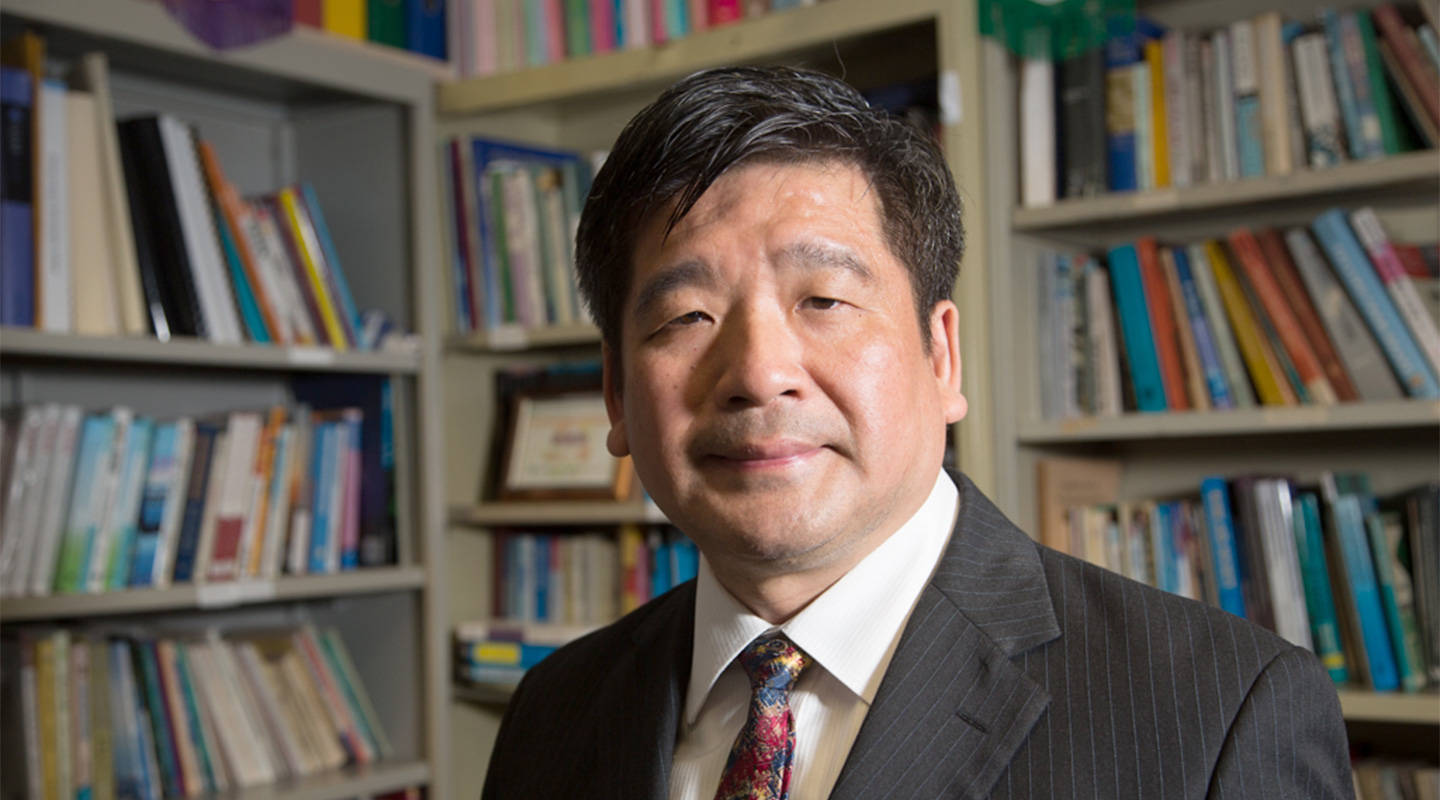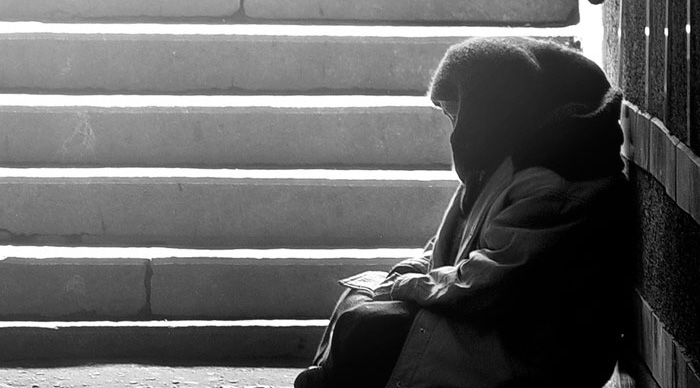Dear readers, With the launch of e-newsletter CUHK in Focus, CUHKUPDates has retired and this site will no longer be updated. To stay abreast of the University’s latest news, please go to https://focus.cuhk.edu.hk. Thank you.
Hong Kong's "New Homeless" Epidemic

Prof. Wong Hung
Department of Social Work
Hong Kong faces a homelessness epidemic produced by its surging property prices and huge wealth gap, according to CUHK Professor Wong Hung. Such street sleepers are largely invisible to ordinary citizens but are a rising demographic.
Traditionally it has been drug abuse or mental-health issues that forced people out of family units to live on the street. But these "new homeless" are often gainfully employed and have solid family backgrounds. It is economic necessity that makes them street sleepers.
Professor Wong first detected changes in the makeup of the territory's homeless population in a comprehensive census study in 2000, and a similar study in 2004. In the first study, through head counts and case studies, he determined that the average age of street sleepers, at 50, had fallen rapidly from 54 in a government study conducted shortly before. One-fifth of the homeless were under 40, double the old ratio. One-third were able-bodied working poor or unemployed people who suffered as Hong Kong entered recession. Three out of four cited economic hardship as the initial force pushing them onto the streets.
The situation abated as the economy recovered from recession that began virtually in lockstep with the outbreak of SARS. But Professor Wong has seen it pick up again this decade and in 2014 in particular. He now estimates there are 1,000 "new homeless" in the city and that these economic outcasts make up 60 per cent of the homeless population.
Those figures stem from one-night visits to the homeless by himself and students and feedback from nongovernmental organizations. Because these "new homeless" have jobs or want to find one, they do not need to find a place to rest on the street until around midnight, often wandering a public area, mall or park beforehand.

Anecdotal evidence collected by Professor Wong shows one spot in Sham Shui Po that had just four or five street sleepers has risen to 80, as rents rose. Public spots in Tsim Sha Tsui are also popular. Since government social work begins in early evening, Professor Wong successfully lobbied Hong Kong's Social Welfare Department to set up service teams at three NGOs to visit these "new" economic homeless late at night.
The root cause now is rising rent. Partitioned flats in a neighbourhood such as Sham Shui Po have climbed from HK$1,500 per month to as much as HK$4,000 for a 100-square-foot room.
The problem, Professor Wong believes, is a structural one in Hong Kong's economy produced by the division or relocation of families. That stems partly from the creation of Hong Kong's New Towns, which were intended to be self-sufficient communities. But that has not proved to be the case, and many residents of Tin Shui Wai, Yuen Long and Tuen Mun still commute downtown for work. They find the cost and travel time too high.
Some workers on the lowest rungs of the job ladder are also Hong Kong citizens who have married mainland partners. They may settle their wives and children in Shenzhen to save on costs but find work in Hong Kong, often in construction.
"When they have jobs in Kowloon, they just sleep near their working site – the cost of travel isn't worthwhile," Professor Wong, an associate professor in the Department of Social Work, says. "And it is not worth renting a flat on Hong Kong side or Kowloon. Maybe half or one third of their income would go to rent. And they also need to pay rent in Shenzhen."
Professor Wong's research shows that many working homeless work irregular hours. Some 16.7 per cent of them work as waiters, according to his original survey. Another 14.3 per cent work in construction. Around 10 per cent each work in these categories: porters and transportation; manufacturing; hawkers; and as cleaners. Their average pay (HK$5,271 per month when measured in 2000) is so low that they have no savings and, if they lose a job, have an accident or get sick, they can no longer pay rent.
Professor Wong has also encountered clerical workers who don suits and head to the office but sleep in Central or Wan Chai. They just tend to be new to the job market and in a multi-year line to qualify for public housing. His interviews uncovered university graduates who don't want to live with their parents but can't buy a flat. Urban redevelopment projects rob them of cheap-rent options.
While the findings of such research have been conveyed to Hong Kong's legislative councilors, top government officials and even candidates for the role of Chief Executive, who invited scholars to provide their input on policy, government schemes do not always translate into reality.
Professor Wong's academic specialties include poverty, social security and job issues in both Hong Kong and rural and urban mainland China. He is also the vice-chairman of the nonprofit Unison Hong Kong, which focuses on the rights of ethnic minorities in the city, and on the council of Oxfam Hong Kong.
Social-welfare lobbying and feedback has had an impact. The government commissioned Professor Wong to evaluate three NGOs. He conducted "path analysis" to evaluate how different factors afflicting the homeless impact and relate to each other before and after the homeless get new services. Using well-being as a dependent variable, he has studied how social capital plays into that sense. This helps produce statistical analysis of how reasons for homelessness play into results, and then how they feed back to each other.
He and the NGOs found that many of the new homeless do not want to accept social-welfare handouts. They also do not like typical homeless shelters since they don't identify themselves with the long-term homeless. The younger a homeless person is and the shorter his time on the streets, the more eager he is to get a job.
So the situation requires new strategies, attempting to prevent any of the "new homeless" spending three or more months on the streets, at which point they risk developing mental problems or losing hope in their capabilities and the job market.
The Social Welfare Department took the professor's advice to offer emergency shelter and stop-gap loans to help them find jobs.
"They don't want to be seen as lazy people," Professor Wong says. "Many of them actually did return the money. They accept this as an emergency financial loan."
"They want to rely on themselves, and this kind of strength and living with respect gives power to me," Professor Wong says. "For a social scientist or social work scholars, we should explore the world, we should understand the world, but the most important thing is to change the world."
By Alex Frew McMillan
This article was originally published on CUHK Homepage in Feb 2015.